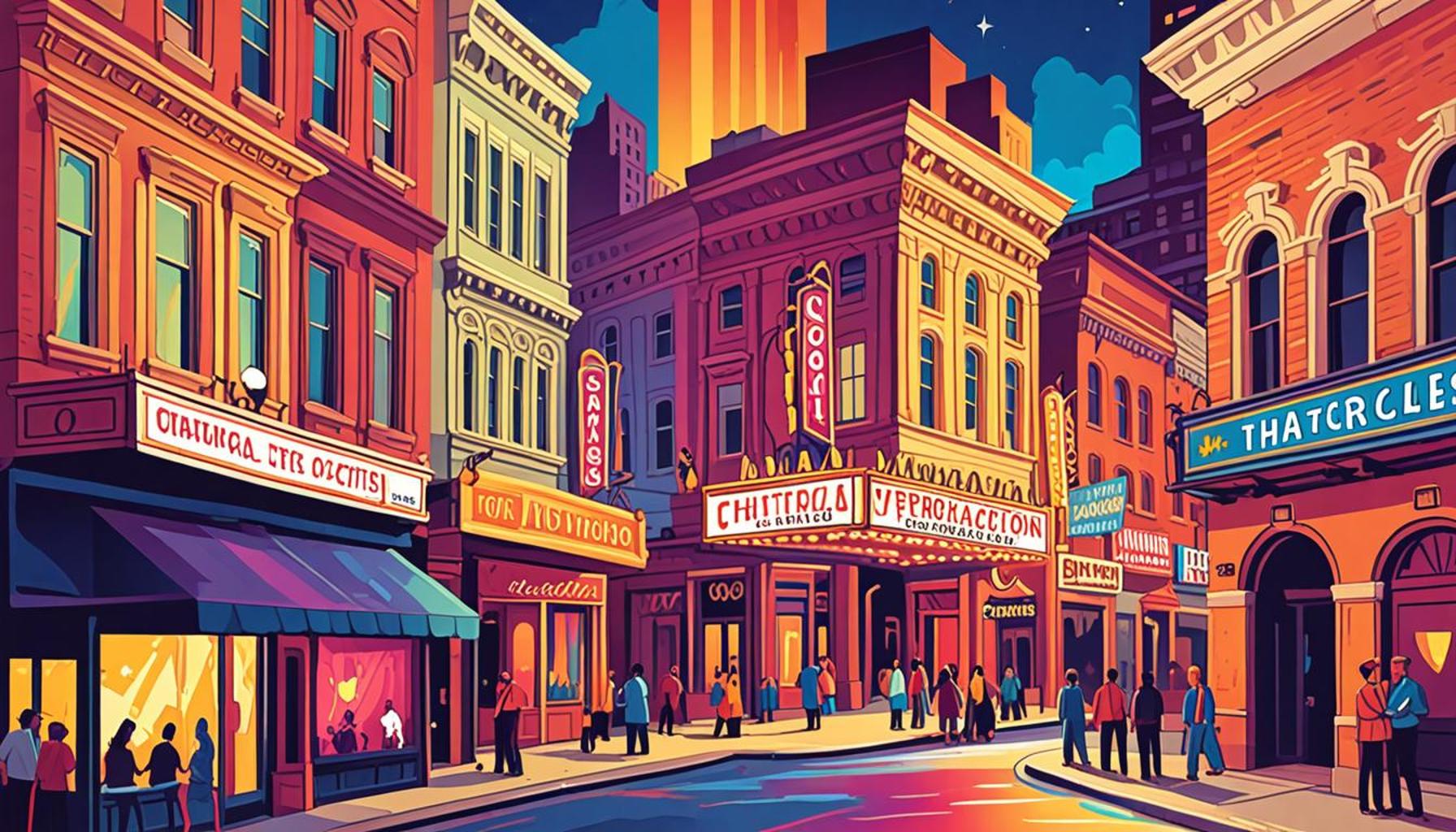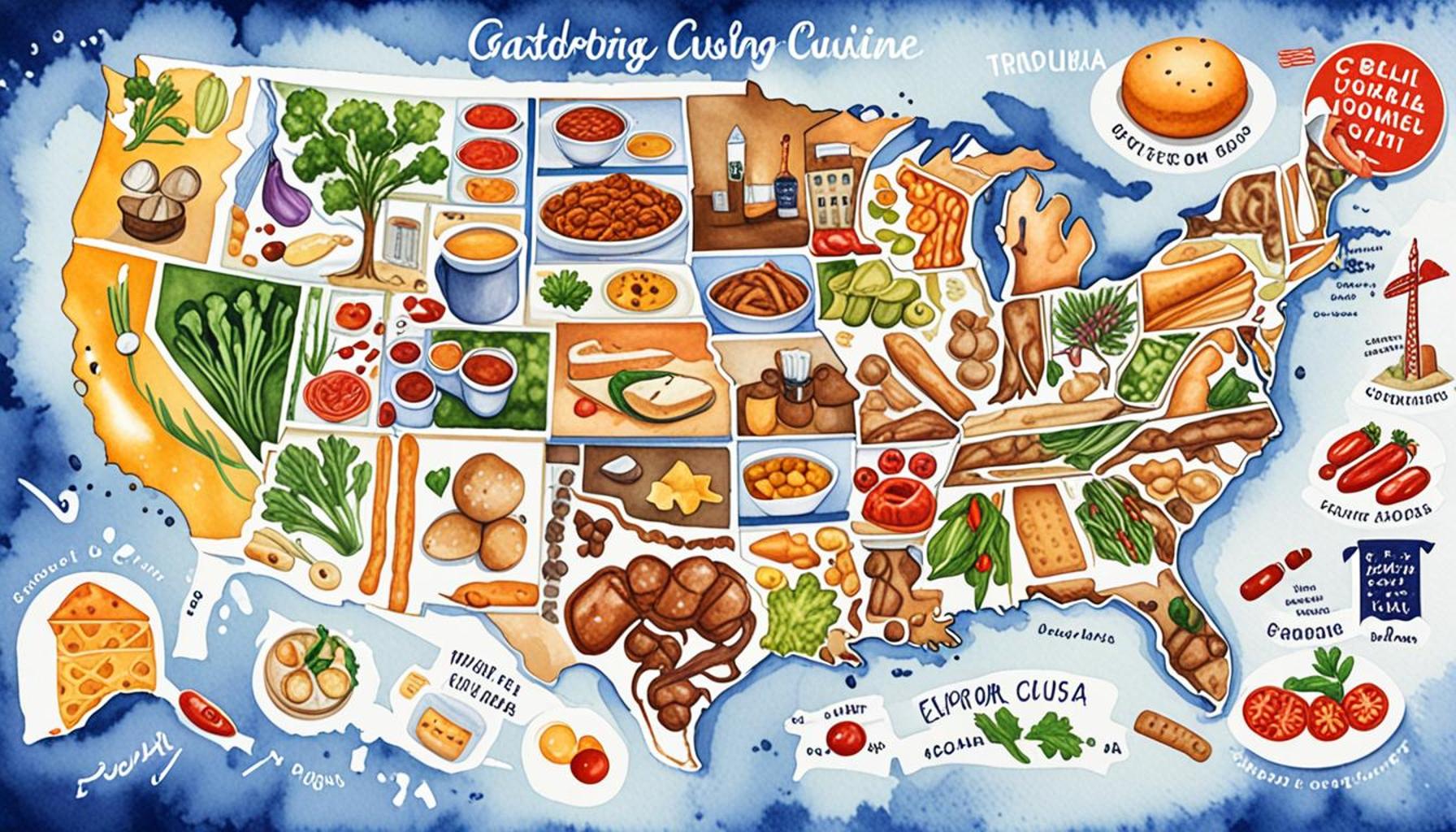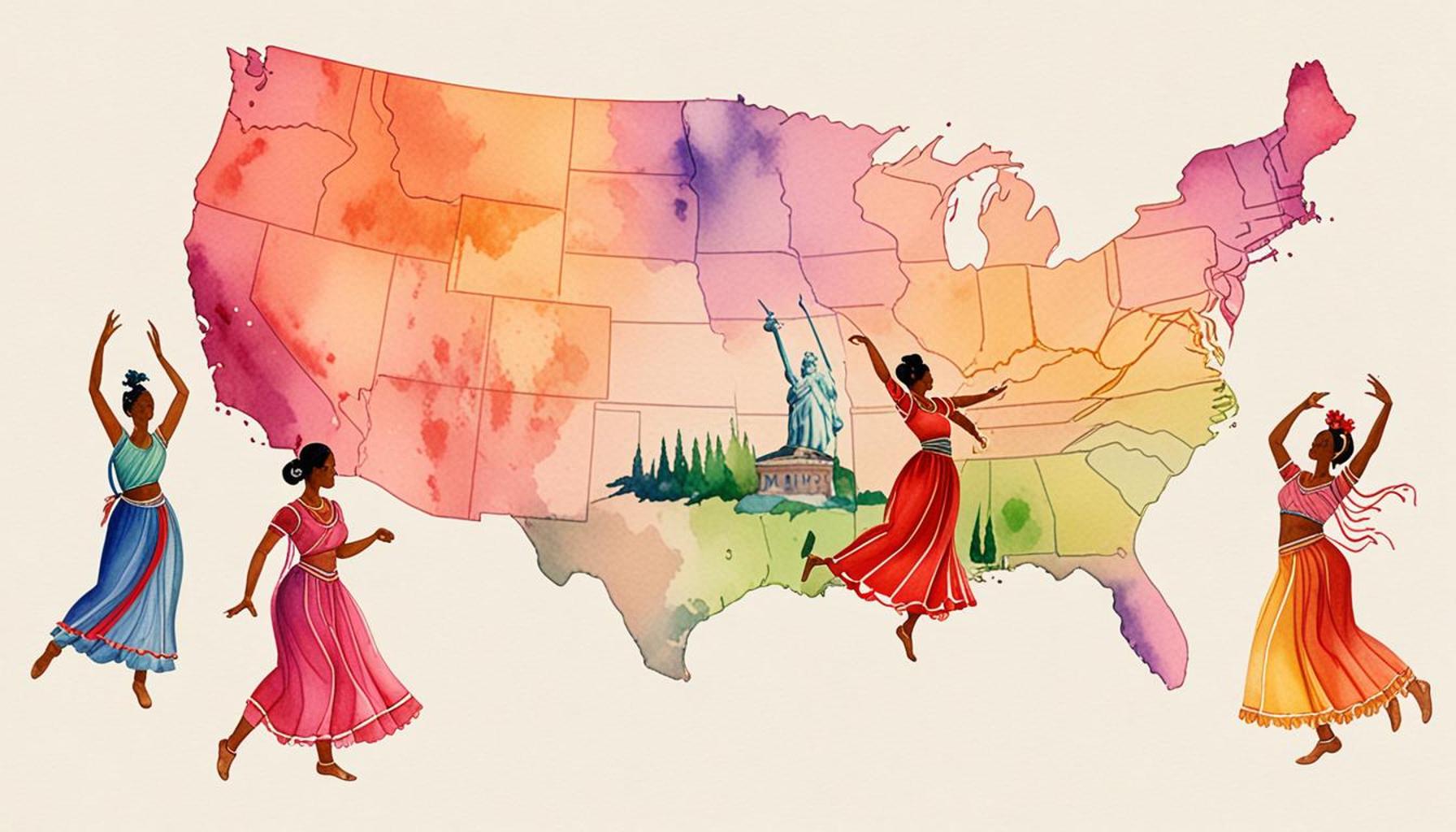Theatrical Experiences: Scripts for Watching Cultural Productions in Historic Cities of the USA

The Vibrant Landscape of Theatrical Productions in Historic American Cities
The cultural landscape of the United States is intricately woven together through its theatrical productions, which serve as compelling reflections of the history, diversity, and creativity found in its cities. From the bustling streets of New York, home to the iconic Broadway, to smaller theaters in historic towns, these productions offer a distinctive lens through which to view the heart and soul of American culture. Each performance is not just a show; it is a portal to the stories that resonate deeply within the local community.
Exploring theatrical productions in historic cities presents a plethora of advantages. Here are some compelling reasons to engage with the theater scene:
- Historical Context: Cities like Philadelphia boast a rich history that enhances its theatrical narratives. The enduring legacy of the American Revolution informs many local productions, often integrating historical figures and events into contemporary storytelling.
- Diverse Genres: The United States’ theatrical offerings are as varied as its landscapes. In New Orleans, you might find lively performances that incorporate jazz and blues, while Chicago often highlights gritty contemporary dramas that reflect urban life.
- Local Talent: The stage comes alive with the voices of regional artists. In cities like Seattle, playwrights are finding inspiration in the rich cultural mosaic of the Pacific Northwest, presenting works that resonate with local experiences and issues.
In cities like New Orleans and San Francisco, the theater scene often becomes a vibrant celebration of the cultural heritage unique to each area. In New Orleans, productions that embrace the city’s distinctive blend of French, African, and Spanish influences not only provide entertainment but also serve as a fascinating introduction to its rich traditions. A performance at the historic Mahalia Jackson Theater, for instance, might feature works that highlight the city’s iconic music styles, offering audiences both art and education.
San Francisco’s theater community thrives on innovation and inclusivity, with performances that often challenge societal norms. Venues like the Curran Theatre showcase a mixture of cutting-edge plays and timeless classics, making it a must-visit spot for theater aficionados. Here, one might find contemporary takes on Shakespeare, providing fresh perspectives that resonate with modern themes.
As you embark on this journey through America’s cherished cities, you will discover specially curated scripts and must-see performances that promise to enrich your understanding of the local culture. Each show tells a unique story, opening a window into the broader narrative of the nation’s cultural history. Prepare to immerse yourself in a world where theater not only entertains but also educates and inspires. Take a seat, experience the artistry and passion that define American theater, and uncover the tales that make these historic cities remarkable.
DISCOVER MORE: Click here for family-friendly staycation ideas
Immersive Cultural Narratives: The Scripts of Historic Theatrical Productions
Theatrical experiences in historic cities of the USA present unique opportunities for audiences to engage with narratives that intertwine local heritage and contemporary issues. Within these historic venues, the stage becomes a space for storytelling that not only entertains but also fosters a deeper understanding of the societal fabric woven into each community. Whether it’s a heartfelt drama in a historic Savannah theater or an electrifying musical in the vibrant streets of San Antonio, each performance has the power to resonate with the audience, inviting them to explore diverse cultural identities.
As you seek out theatrical productions in these historic urban centers, consider the following intriguing aspects that can enhance your viewing experience:
- Integration of Local Lore: The scripts often draw from local myths, legends, and historical events, making for a rich tapestry of storytelling that can bring forth the city’s essence. For example, performances in Salem might include elements from its notorious witch trials, providing not just entertainment but also a historical lens on past injustices.
- Community Engagement: Many theaters actively involve the local community in productions, allowing residents to contribute creativity that reflects their experiences. In cities such as Minneapolis, theater workshops may be held to help residents share their stories, culminating in unique performances that celebrate local voices.
- Interactive Elements: Some productions invite audience participation, adding an immersive layer to the theatrical experience. In cities like Philadelphia, interactive plays may transport attendees back in time, engaging them in the narrative as they navigate the historic districts tied to the plot.
Aside from the unique stories told on stage, venues themselves often have their own remarkable histories. The historic Ford’s Theatre in Washington, D.C. is a prime example. Not only does it host a variety of significant productions, but it also stands as a memorial to President Abraham Lincoln, entwining performance art with a notable chapter of American history. Attendees can feel the weight of the past as they enjoy shows within its storied walls, with each curtain rise echoing the city’s legacy.
Moreover, in the realm of music theater, cities like Austin have emerged as culinary hotspots as well as cultural hubs, where theater and music intertwine. The Austin Opera frequently collaborates with local musicians, enriching performances with a unique blend of genres that appeal to a wider audience while showcasing the city’s musical creativity. Here, audiences might discover performances that combine traditional elements with modern styles, reflecting the vibrant cultural evolution within the city.
As interest grows in local theatrical productions, so too does the importance of understanding their context. The scripts that shape these experiences offer not just a window into a city’s past but also insight into its current societal dynamics. By engaging with these theatrical experiences, audiences gain a richer appreciation of not only the art form itself but also the community represented on stage. Prepare to navigate through the narratives that shape the identity of America, and witness firsthand how historic cities continue to inspire groundbreaking artistic expression.
| Theme Advantage | Details |
|---|---|
| Cultural Engagement | Immerse yourself in the history and contemporary relevance of productions that reflect the unique narratives of each city. |
| Accessibility | Enhanced accessibility through provided scripts allows diverse audiences to experience theatrical performances fully, regardless of language proficiency or hearing impairments. |
The thematic focus of Theatrical Experiences goes beyond mere entertainment; it offers audiences a rich tapestry of cultural heritage intertwined with the arts. As historic cities throughout the USA boast unique narratives, the scripts for these productions provide a vital bridge between playwrights and audiences. Through engaging with cultural productions, individuals not only consume art but also become part of a larger conversation about identity, memory, and community. Visiting iconic venues, whether in New Orleans, Boston, or San Francisco, lends a backdrop to these theatrical performances that enriches the audience’s understanding of each city’s evolution.Moreover, the accessibility features incorporated into the scripts help to break down barriers that often exist in the arts. With clear language indications and descriptive elements, everyone can appreciate the nuance and artistry of each performance. The result is a profound connection to both the content and the shared cultural experience, fostering inclusivity in the appreciation of artistic expressions in historic settings. This intertwining of script and city creates a unique opportunity for discovery, prompting audiences to explore and engage with cultural narratives that may be unfamiliar, thus broadening their artistic horizons. The goal is not only entertainment but also enlightenment, inviting everyone to delve deeper into the cultural essence that each production encapsulates.
DISCOVER MORE: Click here for family-friendly staycation ideas
The Intersection of Education and Entertainment: Enhancing Cultural Literacy Through Theater
Theatrical productions in historic cities also serve an essential educational role, functioning as living classrooms that enrich the cultural literacy of their audiences. These staged narratives can provoke thought, inspire dialogue, and encourage visitors and locals alike to explore their city’s intricacies through a new lens. The scripts performed within these theaters often incorporate educational elements woven seamlessly into the fabric of entertainment.
For instance, venues in New Orleans, such as the historic Saenger Theatre, frequently host performances that pay homage to the city’s profound musical legacy. This dual focus on theater and music education showcases how the scripts reflect the African American experience, particularly with productions highlighting the struggles and triumphs of cultural luminaries like Louis Armstrong. By attending such shows, audiences can dive deeper into the historical context of jazz, immersing themselves in cultural narratives that are often overlooked in traditional educational settings.
Moreover, many theater companies in historic cities actively produce works that address contemporary social issues, transforming entertainment into a platform for advocacy and awareness. In cities like Chicago, productions tackle themes such as race relations, urban poverty, and immigration. By presenting these narratives through the lens of personal stories, they resonate with audiences on a deeply emotional level. For example, the renowned Goodman Theatre produces scripts that intertwine current events with the rich historical backdrop, prompting discussions that extend beyond the theater walls.
- Seasonal Events and Festivals: Cities often host theater festivals that celebrate their unique cultures. The Celebration of Black Arts in Philadelphia features plays that explore African American history and artistry, drawing in large crowds and promoting community participation.
- Cultural Exchanges: Theatrical experiences in these locales often facilitate exchanges between unique cultural groups. In places like Santa Fe, productions featuring Native American narratives engage with Indigenous artists, contributing authenticity to the storytelling while fostering understanding among diverse communities.
- Educational Partnerships: Many theaters collaborate with local schools to provide programs, workshops, and performances that enhance student engagement. Through tailored educational scripts, students gain insight into their city’s history, fostering a sense of belonging and cultural pride.
Exploring these theatrical offerings not only enriches visitors’ experiences but also deepens their connection with the locale. Audience members are often left pondering larger societal themes addressed in the performances, igniting a passion for social change inspired by the stories they witness. For example, a production in the historic Boston Center for the Arts might showcase the challenges faced by immigrant communities, highlighting narratives that foster empathy and collective reflection among attendees.
The intricate scripts at play provide adults and children alike with vital learning moments, bridging the gap between historical events and current realities. As cultural landscapes in these cities constantly evolve, the theater presents an adaptation to change, capturing the dynamic essence of the community while reflecting on its legacy. Thus, the theatrical experience transcends mere entertainment; it becomes a critical medium for education and societal growth, inviting audiences to actively engage with not only theatrical arts but also the rich cultural narratives that shape the identity of America.
DISCOVER MORE: Click here for delicious family culinary adventures
Conclusion: Embracing Heritage Through Theatrical Narratives
In conclusion, the theatrical experiences found in the historic cities of the USA offer more than just a feast for the senses; they serve as a profound gateway to understanding and appreciating the diverse cultural tapestries that define these regions. By presenting scripts that resonate with historical narratives and contemporary issues, theaters become vital platforms where audiences can engage in meaningful conversations about identity, heritage, and social change.
From the vibrant storytelling of New Orleans to the poignant reflections in Chicago, these productions encapsulate the heart of America’s cultural evolution while fostering a sense of community. Seasonal events and cultural exchanges enrich the experience, further bridging the gap between artistic expression and audience participation. By collaborating with educational institutions and harnessing the emotive power of performance, theaters not only promote intra-community dialogue but also nurture the next generation’s appreciation for their heritage.
The interplay between education and entertainment found in these historic locales is essential in cultivating a society that values cultural literacy. Audiences are challenged to reflect on pressing issues while gaining insight into the societal fabric of their cities, ultimately embracing their surroundings with a renewed sense of purpose and pride. Therefore, as we explore the theatrical offerings across these historic landscapes, we invite you to reflect, engage, and discover the narratives that shape our collective experience, making each performance a stepping stone toward a more inclusive and informed society.


